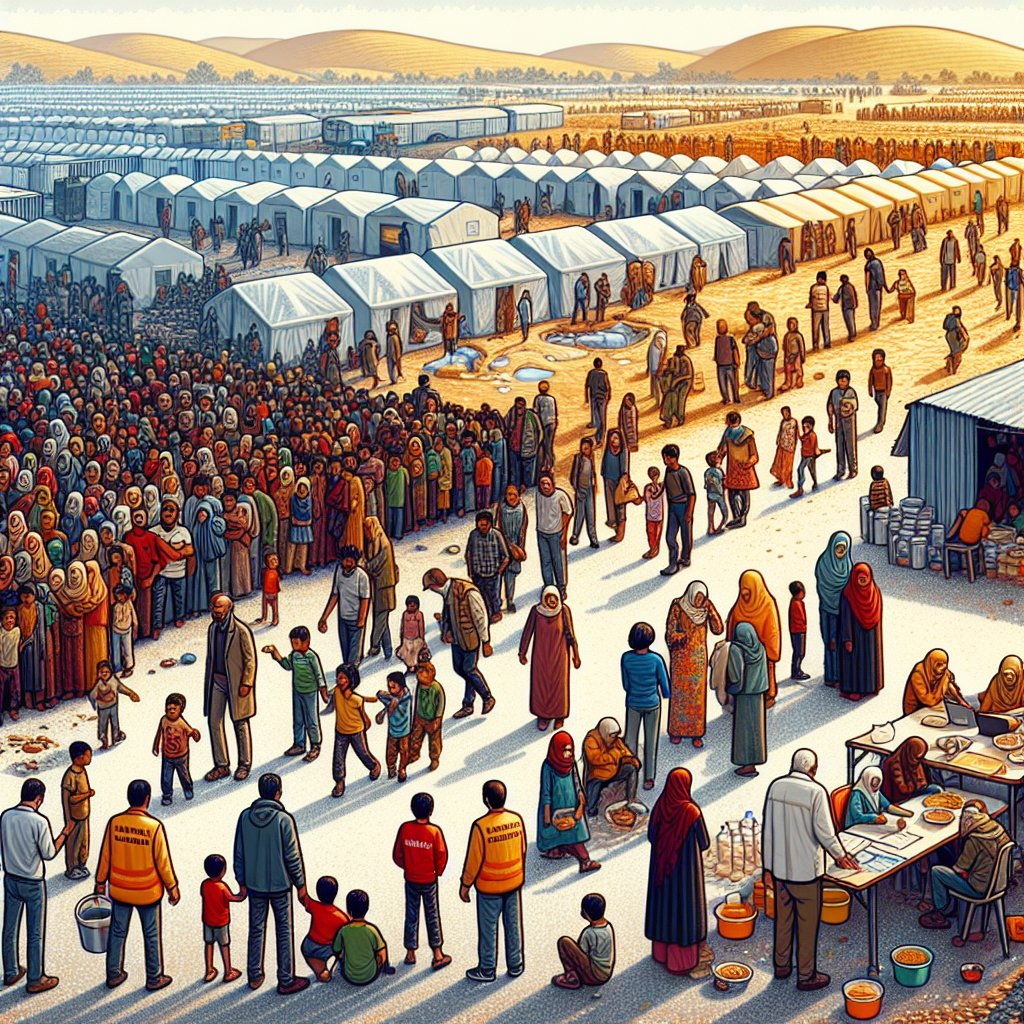UNHCR Grave Suffering for IDPs and Refugees as Conflict Intensifies in D R Congo
The situation has recently worsened; on September 26, three displaced individuals were killed in crossfire during a violent clash at the Lushagala displacement site, near Goma.

The United Nations Refugee Agency (UNHCR) has issued a stark warning regarding the escalating humanitarian crisis in the Democratic Republic of the Congo (DRC). Prolonged conflict, serious human rights abuses, and blatant violations of international humanitarian law are inflicting severe suffering on internally displaced Congolese and refugees. This warning follows a humanitarian assessment visit by Ms Ruven Menikdiwela, UNHCR’s Assistant High Commissioner for Protection, to various regions in the DRC, including the capital, Kinshasa, and the eastern provinces.
In the first half of 2024 alone, over 940,000 individuals have been forced to flee violence perpetrated by numerous non-state armed groups, with many displaced people experiencing multiple displacements. Currently, the number of internally displaced persons in the DRC stands at a staggering 6.4 million.
“I am extremely concerned about the forgotten but devastating plight facing civilians in the DRC. It is a travesty that atrocities continue to confront this long-suffering civilian population and that even in their quest for safety, they face a litany of human rights violations,” stated Menikdiwela.
Recent Incidents of Violence
The situation has recently worsened; on September 26, three displaced individuals were killed in crossfire during a violent clash at the Lushagala displacement site, near Goma. The skirmishes, involving heavy weaponry, lasted approximately five hours and resulted in injuries to another 21 people.
In North Kivu, there have been nearly 20 security incidents affecting displacement sites this year. By the end of August, UNHCR protection monitors had documented over 71,200 victims of human rights abuses.
Gender-Based Violence and Human Rights Violations
During her visit, Menikdiwela spoke with displaced individuals in Ituri and North Kivu provinces, where they recounted horrifying experiences of killings, detention, kidnapping, extortion, and the recruitment of children by armed groups. Women and girls face particularly grave risks, as gender-based violence is rampant and sexual violence is systematically employed as a weapon of war.
Data from the Gender-Based Violence (GBV) Area of Responsibility in DRC indicates a distressing increase in reported cases of gender-based violence in North Kivu, with 27,328 incidents documented in the first half of 2024, up from 20,771 during the same period in 2023. Alarmingly, 63% of these cases are classified as rape. Displaced women and girls are increasingly resorting to harmful coping strategies, including engaging in transactional sex for survival or risking dangerous trips into conflict zones for basic necessities like food and firewood.
Calls for Immediate Action and Support
Menikdiwela called upon all parties involved in the conflict to prioritize the well-being of civilians, including displaced populations, by ensuring that the humanitarian nature of displacement sites is upheld and safe passage for these vulnerable groups is restored.
Additionally, overcrowding and deteriorating sanitary conditions in displacement sites raise concerns about heightened exposure to diseases, including the virulent mpox virus. Humanitarian actors are particularly worried about the potential for outbreaks in these already precarious conditions.
During her mission, Menikdiwela met with Prime Minister and Vice Prime Minister officials in charge of Home Affairs, provincial authorities, and humanitarian partners. She reiterated UNHCR’s commitment to work with authorities to assist, protect, and seek solutions for the forcibly displaced populations. “It is abundantly clear that peace is the most sustainable and durable of solutions and is urgently needed,” she remarked.
A Glimmer of Hope Amid Crisis
Despite the dire circumstances, Menikdiwela observed some reasons for hope. She noted a strong commitment from various actors to seek sustainable solutions, highlighting success stories from internally displaced families who have benefited from local integration schemes, enabling them to build homes and establish small businesses that contribute positively to their new communities. She emphasized the crucial role authorities have played in these efforts and stressed the need to scale them up.
Urgent Need for International Support
UNHCR is also appealing for increased support and funding from the international community. As of August 31, 2024, the agency had received just 37% of the $250 million required to meet the needs of displaced individuals in the Democratic Republic of the Congo. Without additional funding and resources, the plight of internally displaced Congolese and refugees is likely to worsen, leaving millions vulnerable in the face of ongoing violence and humanitarian challenges.
- READ MORE ON:
- Democratic Republic of the Congo
- UNHCR
- Ruven Menikdiwela










